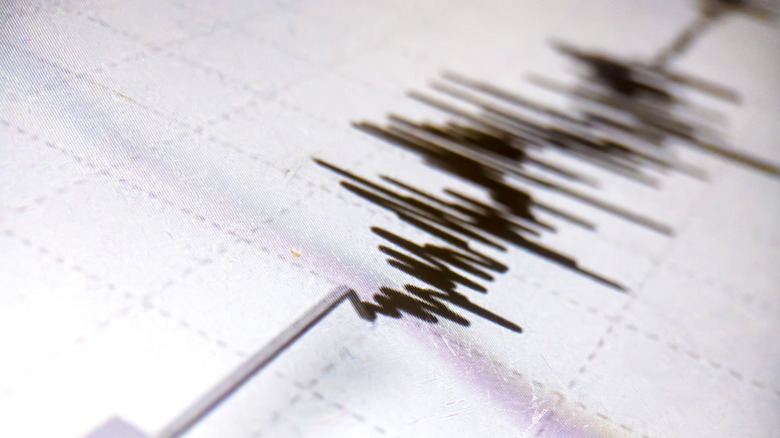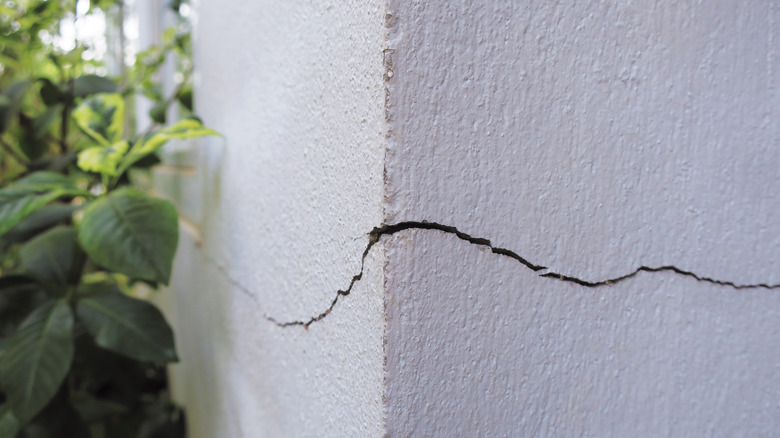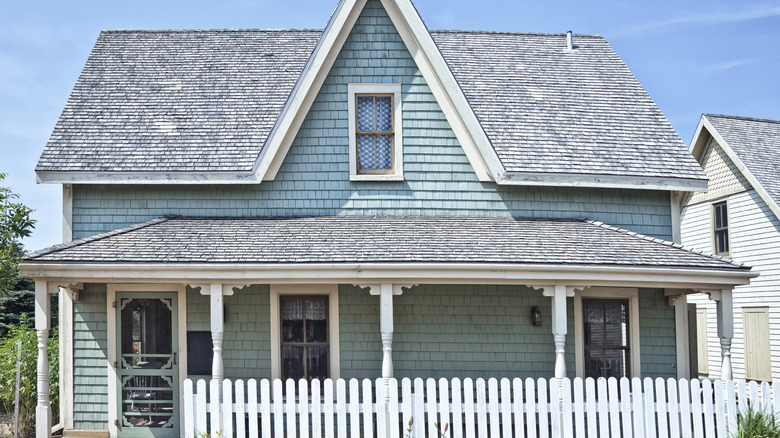Things To Consider Before Getting Earthquake Insurance
Earthquakes affect millions of homeowners and others across a large portion of the United States. Homeowners can take advantage of a specialized insurance product to help them piece together their lives after an earthquake strikes their community, but many don't add in coverage until it's too late. Earthquake insurance is often thought of as a crucial protection product for the modern homeowner, but not every policy will be the same when it comes to earthquake damage coverage.
This means that the average homeowner living in an earthquake-prone area will need to consider their own unique circumstances before speaking with their insurance company about adding this layer of protection. Insurance Information Institute reports that homeowners insurance will often cover damage resulting from fire after an earthquake takes place, but won't protect your home from the immediate effect of the earthquake itself. As a result, specialized coverage is necessary in many instances.
Protecting your home, your family, and your belongings from the devastating effects of an earthquake is crucially important. Starting with these five things that you should keep in mind, approaching the insurance marketplace can be made just a bit simpler.
Earthquakes happen virtually at random and can shock a community
Earthquakes occur essentially at random. They happen along fault lines in the Earth's crust, and some areas of the globe are at a higher risk than others. Communities along the west coast are particularly vulnerable to the effects of earthquakes in the United States (via California Earthquake Authority). Elsewhere around the world, the science of plate tectonics shows us that the Pacific rim on a much larger scale is susceptible to Earth-shaking, extending up along the coast of East Asia. Similarly, Iceland, North Africa, the Middle East, and the west coast of South America sit roughly along the edge of two plates.
The British Geological Society notes that there is an inverse relationship between average magnitude and the typical volume of earthquakes that occur in any given time period, for instance over the course of a single year. This is important to note because it can help inform a homeowner's decision to update their level of coverage when it comes to earthquake damage to their property. If a year has been particularly active, it's less likely that the community will see a substantial shaking event that deals a heavy blow in terms of damage. Conversely, if there has been a long drought in this regard, then you may be more at risk of a large-scale earthquake in the near future than average.
The age and construction of your home can play a significant role in this decision
An important thing to consider before you invest in new or expanded earthquake insurance coverage is the age of your home. Older homes are constructed with less substantial protective measures enmeshed in the fabric of the property. Building practices become more scientific and efficient over time, and so a newer home will naturally be more resistant to earthquake damage than an older one, all things considered (via Modlust).
The natural defensibility of your home in terms of earthquake events can be a determining factor in the type of insurance that you select. Older homes are of course more susceptible to damage, but they may be worth less financially as well. Depending on your particular needs, it may be worthwhile to invest in a more substantial policy if you live in a property with more age under its belt. Conversely, your financial circumstances may be more sophisticated than the average homeowner, and therefore minimal coverage might help you balance your budget better while your emergency fund takes care of any repair work that may be required above the minimal protection.
It's worth noting that even if your home is a new build employing all the latest technology to support stability throughout an earthquake, severe events can still damage or destroy your property. Thinking about the typical event that happens in your local community in tandem with the state of your home can be helpful in this regard.
Earthquake insurance won't cover all losses
It's crucial to note that earthquake coverage from your insurance provider typically won't cover the entire financial toll of an earthquake (via Insurance Information Institute). Therefore, you'll need to take out the policy that works best for your requirements and save for the inevitability of at least some repair efforts that come out of pocket. Building an emergency fund is a crucial step for any homeowner. Natural disasters happen in all corners of the United States and around the world as well. On the east coast, homeowners must deal with the yearly effects of hurricane season. Northerners often brave the severe chill that descends over many of the winter months and may have to ride out a blizzard or two. And Midwesterners are faced with the potential for tornadoes, fires, and the occasional surprise cold snap.
No matter what kinds of emergency circumstances you might be facing, it's important to know that your insurance policy likely will require some supplement out of your own pocket. Insurance providers, at a bare minimum, will charge you a deductible for making use of the policy benefit. This means you may be on the hook for a small portion of the repair work, but if you are rebuilding an entire home, then this small percentage can amount to a sizable dollar figure. Therefore, setting aside emergency cash for use under these dire circumstances is essential for all homeowners, regardless of the type of insurance you take out.
Varying levels of coverage exist
While no homeowner should assume that their insurance policy will cover the entirety of their repair works or other potentially out-of-pocket expenses when recovering from earthquake damage, there are many levels of coverage that you can take advantage of. Some policies will only cover the cost of home repairs while others provide funding to cover living expenses as well during the time that you're out of your home. Most policies won't cover the cost of replacement when it comes to personal items and decoration within your property. However, the California Department of Insurance reports that a standard homeowners insurance policy will likely cover any damage that occurs as a result of fire stemming from the earthquake and so in a strange twist of fate, you may be better off if your home catches fire as well during this disastrous occurrence. Of course, it's always important to speak with your insurance agent about what will be covered and how benefits will be paid out with any policy that you are thinking of purchasing.
For any homeowner in a community that is routinely affected by earthquakes, browsing through insurance products is an essential task that must be done on a routine basis. Your circumstances will change at least every few years and so thinking about your current coverage level and any changes that have occurred since the last time you purchased this supplement will help keep you up to date when it comes to protecting your home and family.
Renters can make use of this coverage, too
Lastly, insurance coverage that deals with the effects of earthquakes can be purchased by renters as well. For the average homeowner, finding an insurance policy that will protect against both the damage to your property and losses inside the home as it pertains to furniture, decorations, and other belongings may be difficult. However, renters don't have the same kinds of needs when it comes to securing their belongings. The home they live in doesn't belong to them and so repairs to the property are not a renter's concern. Investopedia notes that shirking responsibility for the home itself when it comes to modernizations, replacements, and repair works is one of the primary benefits of renting rather than owning at home.
Even though coverage for your belongings can be difficult to come by for homeowners, renters can take advantage of increased renters insurance coverage options to include damage caused by an earthquake (via California Earthquake Authority). This gives renters with important belongings that may be potentially expensive the peace of mind they need to continue enjoying life to its fullest. Even though you may not own your home, you might have invested in an expensive TV, own a collection of musical instruments, or have expensive artwork or clothing stored on the property. Coverage for these needs is just as important as that for a homeowner to protect their abode.





